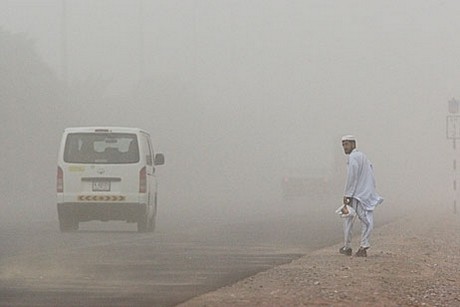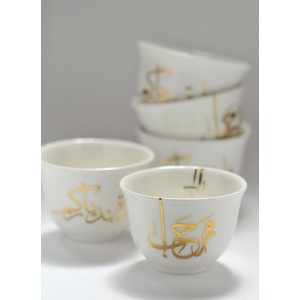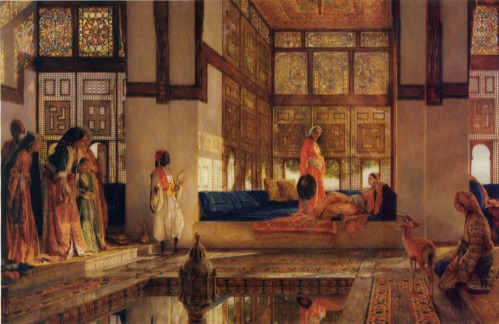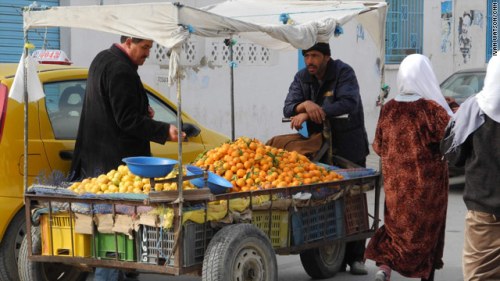Written by Gracie Lawrence

I once asked my Levantine husband when we were newly married what it meant to be an man in his country. He responded half laughing and half sighing …
“A crushing sense of responsibility for everyone, knowing I will please no one!”
This reply surprised me, and I can honestly say I did not understand it until many years (and many kids) later when I visited his home country.
Gender issues are always complex.
I was raised in 80s and 90s- the civil rights area was something of my father’s time and I was comfortable in my MTV and jelly shoes to know that women of any color could vote or study whatever she wanted. We didn’t have to stay at home in aprons making pie- there was a whole world out there that was already employing both men and women. With enough Sesame Street in your childhood, it was enough to make any pony-tailed girl optimistic.
Sure, now in my 30s- fully aware of equal pay for work disparages and how the role of motherhood can totally derail a career- I am a bit jaded about all the equality.
Still there are far worse places to be a woman, right?
Interestingly, I never considered that those very places would be the same where it is also far worse to be a man.
Of course in the end it is a matter of personal perspective. I don’t want to get in a culture war right here in the sanctuary that is islamwich. In the West, most of us assume that the West is a better place to be a woman, because our values and what we have been told are in line with that reality … or any place with some pretty awesome law and order; with petty corruption kept well under wraps. Oh Man, how I love that …
But gender roles are much more complicated in Arab culture than I originally thought, and the role of the average Joe Abdul was much more of a mystery to me.
Who is the Arab man?
Can there be more than what is shown on the cover of mainstream media- violent, angry and oppressive? Aren’t they fathers, sons and brothers too?
“Why should I have to do it, it is the man’s job.”
She smiled, adjusted her pink hijab and had a seat while she passed the papers to her brother-in-law, who diligently began to take care of all the bureaucratic work she needed done at the local government building.
Yes, it is a man’s world. And in the Middle East, life is much, much easier with a man.
They take care of the outside stuff.

They pick up the groceries, haggling over price with the local vendors.
They pay the bills at long lines at the telecommunication or electric company … in the heat and dust.
They take care of any car related work- including filling the gas.
They might chauffeur you to your doctor appointment, family events and other shopping trips. They might even need to come to your doctors appointments whether you think it necessary or not (see Stephanie’s story on her experience at a Saudi Arabian Hospital).
They take care of any government or police related work- and any potentially related verbal abuse that may come with that, unfortunately.
Probably most of all they are expected to make money, make money, make money…
Come holidays, they are passing cash gifts to their sisters, aunts and children.
They are expected, if financially able, to lift the entire family (in-laws included) with either opportunities or actual financial contributions- for example-paying for a younger sibling’s education or wedding.
They are standing at their father’s side for every social obligation, spending hours at people’s houses- sometimes for multiple days during funerals, weddings, engagements, births (which are always taking place because families are so huge). And if they do not do it, it reflects poorly on the father and the family -and good luck getting your daughters married if people think you have an irresponsible family.

They do all this because they are expected to, just like they expect their wife to cook a meal or make a bed (don’t get me wrong, I know plenty Arab men that also cook and clean and I also know Arab women who do a lot of “outside” work).
But a lot of this responsibility is not just limited to husbands, oh no, it also falls on the brothers and on the uncle or on the brother-in-law to fetch, to drive, to take the external abuse of the system, to wait for hours in the heat, to essentially serve as a shield to their women the discomforts of outside life that can be aggressive, hot, dirty … or even … eww … horny.
And that is what I found interesting. See, my idea of Middle Eastern gender roles was limited to interactions between husbands and wives, but the traditional Arab family is much larger than that. With many sisters and aunts, maybe some widowed or never married, some with no kids and some with 8+, much more responsibility exists for that brother or father who is expected to try to soften and ease their family’s world.
Yes, traditionally when a woman marries a lot of this does fall on her husband. But what happens if a woman never marries, divorces or becomes a widow? Aghast, women I have spoken to have told me,
“A woman doesn’t live alone. What if she needs something- what if someone tried to harass her?”
Generally, if there is no husband, a woman stays in her father’s house and he provides many of the outside duties for her. If he is old, then her brother helps. Even very young boys have their homework interrupted to fetch groceries for their mothers or sisters in the middle of the evening, maybe even 2 or 3 times into the night (and sometimes it might just be the neighbor’s boy). If she doesn’t have a brother, her brother-in-law, uncle or even cousin will help. I have seen situations where one brother is taking care of his wife, his children and three of his sisters- living all in the same building. I know men who will be expected to take care of his wife, daughters, mother and aunts into older age.
That is not the kind of fancy Eastern harem I was expecting – not sexy at all.

This responsibility is a duty passed from father to son, especially if you are the eldest. Coming from a Western background, I find it amazing to see brothers take such care of their sisters, even until very old age-not that there aren’t cultural duds that don’t come through, because they exist and everyone knows who they are.
I don’t want to romanticize this though.
When women feel that they can (or have to) leave the most thoughtful decisions to the men of the family, she, and eventually society at large, may begin to undervalue her actual abilities. In shielding her from many responsibilities that people in the West consider synonymous with adulthood and maturity, there exits the potential of keeping her in a perpetual state of need and care. It is a precarious position for any woman and one that also puts significant continuous pressure on the average man.
The women are also aware of the their own pressures to cook, to have children, and depending on the family’s economic situation, the pressures can be very real with outside work to be compounded on top of inside work (I know a lot of Western women that can sympathize with that).
But the way that the men cater to their female relatives also reveals another story.
And that is that living in the Middle East can be tricky.
Why send a man to get the oranges?
Because he will probably be getting a better price (much like how women in the West feel about going to the mechanics).
Why send a man to get the bureaucratic stuff done at the government building?
He is more likely to be taken seriously.
Why does the man drive you around (if you are fortunate to have a family car)?
Because he doesn’t want someone to “accidentally” touch you on the public bus.
Are these just Middle Eastern problems? Honestly, I don’t think so, having experienced this in the West as well, although we could argue which is “better” based on frequency and severity.
Interestingly enough, Western women who come to the Middle East alone are actually harassed more than the local women here- why? They have no family here; no one will make a fuss about her honor. She has no tribe that the other guy will have to be responsible to.
And a fraction of the local men (many of whom cannot get married or will not be able to until their 30s because of the crushing poverty; in a place where relations outside marriage are hard to come by) are much too eager for this potential “foreign lady” possibility. They have probably seen enough American movies or porn to think that the disturbing attention they give her might be enjoyed or *shock* reciprocated (apologies to those with a super sensitive gag reflex).
Unfortunately, these guys make everyone look bad.

How did I feel having all the things done for me that I usually take care of myself?
Honestly, I like shopping for my own things and going places independently and I missed that. I am a product of my environment after all and I value things differently; other Arab women are shocked and appalled by some of the things Western women generally take care of themselves. My most unusual memory is of a particular Saudi women who recoiled in horror that we change our own children’s diapers-no people, that is not the Middle Eastern norm at all!
Could I have haggled a fair price for all the strawberries I wanted to buy from the guy at the strawberry cart. No way, but can I really blame a man whose salary is probably under $200 a month and is supporting who knows how many people?
Like most issues that are neither black or white, it is hard to know how to feel, folks. But I do have a broader awareness of the male’s role in the Middle East. His is a much more silent voice with different problems and responsibilities than I was aware of, and because of his position in society, more likely to be affected differently by political or economic oppression. It is just something to consider next time you open the paper and read about a tragedy- these men can be under a great deal of pressure not just from their jobs, or general regional instabilities but from their families as well.

Ultimately many of these men juggle multiple roles, are aware of what is expected of them and continue to perform day after day in less than ideal circumstances. Not all of them are as the media would like us to believe- existing solely as potential terrorist threats- but just trying to live normal lives in dignity with the family they love.
Quite often, the good Arab guys go unnoticed.
So…
Follow us (upper right of the page), email us (islamwich@yahoo.com), like our face with your face on Facebook, like the post, share it, pin it, comment on it, and/or do whatever social media magic it is that you prefer. Find out more about us in the understandably named “About Us” page and browse other posts in our brand spanking new “Table of Contents”.



Very well written! I sympathize with you. It happens in my country, too. Men take care of the whole family but to the people that don’t see the whole picture they think such men are overbearing when hey have no idea the weight on their shoulder. My husband is also ‘levantine'<—-me like the word ;). They do the same in his country. if people actually open their eyes, they will see that women are actually like queens because they are being taking care of at least by someone in the family. These men don't shy away from duties. Having said that, every now and then I like doing my own shopping and waltz free around ;).
LikeLiked by 2 people
Thanks for the comment. It is a blessing to have a responsible spouse and that works both ways. I am glad you found some truth to what was written. 🙂
LikeLiked by 1 person
Welcome and masha Allah ;)! tlc always!
LikeLike
Mashallah, a well-written and insightful piece! Yes, the way my husband caters to his sisters and mother is so much different and (for me personally) so much preferable. I wish I had brothers who were more helpful.
Meanwhile in the ‘modern’ and ‘equal’ world that is called West, women are protesting Instagram’s no topless policy. http://www.theglobeandmail.com/life/celebrity-news/the-a-list/now-trending-why-scout-willis-posted-topless-pictures-to-instagram-in-protest/article18911574/
LikeLiked by 1 person
LOL, yes I have heard about that policy- the power of boobs is an amazing thing. Like many women, I prefer to keep mine covered. How does that saying go….with power comes responsibility… or something like that lol.
LikeLiked by 1 person
Indeed with “power” comes responsibilities 🙂 unless you want your “power” to backfire. And using too much of your “power” could result in it no longer having any effect on the person intended. Phew, that’s an overload of power!
LikeLike
Actually that power is in correspondence with cultural norms as well. In parts of the Amazon and Africa, women of the tribe are bare chested because breasts are not seen as sexual parts. Likewise a hundred years ago a women’s hands and ankles exposed would be considered “out there” (why Englishwomen wore gloves). But as we now move to an era of utter sexual degeneration where everything hidden has become public, and as breasts and cleavage becomes so ubiquitous, in the near future the power shall be lost.
#Dajaal_Forinincationinthestreets
LikeLike
“…everything hidden has become public, and as breasts and cleavage becomes so ubiquitous, in the near future the power shall be lost…”
True Hyde! And the scariest thing is, perverts are now looking for new means to appeased their depraved sexual appetites. Pedophila, gerontophilia, necrophilia, bestiality and so on are just a few of the wicked disorders that according to some studies are factored by the normalcy of porn. Allah knows His creations fitrah and that is why He has lay down certain laws for us to hear and obey.
Hyde, perhaps that is why cannibalism was/is a norm in those tribes you mentioned since the human body no longer carry any sacredness. According to some experts, sexual cannibalism is considered to be a psychosexual disorder, which involves a person sexualizing the consumption of another person’s flesh.
Allah knows best.
LikeLike
LOL don’t tell the Christians that! Body of Christ in Holy Sanctimony (nothing against Catholics, I like ’em)
LikeLike
I loved this article!!
LikeLike
Thank you for your feedback and I am glad you enjoyed!
LikeLike
MashaAllah, this article is so amazing and right on. Good writing sister. Very nice and beautiful. I experienced this all when I lived overseas.
LikeLike
Living overseas is always a huge learning experience- I am glad that you enjoyed this piece! Salam
LikeLike